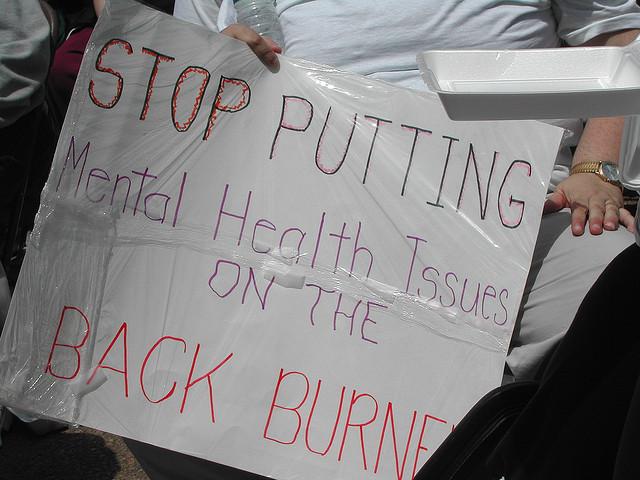Last month, Assembly Speaker Robin Vos, R-Rochester, announced the creation of a new committee that would facilitate mental health reform in Wisconsin. Although we will have to wait and see what specific reforms ultimately emanate from the committee and the Legislature, but there have already been positive signs that the Legislature will end up enacting proactive reforms to help those with mental illnesses, including reforms to reduce the stigma of mental illness.
People with mental illness are, many times, stigmatized. Media analyses of film and print have identified three main misunderstandings of mental illness— misunderstandings which lead to subsequent stigmatization: “[1] people with mental illness are homicidal maniacs who need to be feared; [2] they have childlike perceptions of the world that should be marveled; or [3] they are responsible for their illness because they have weak character.”
Although the stigma surrounding mental illness has decreased slightly over time, it is still widely prevalent among the general public. For example, while the general public is starting to see “mental illness (as) a biological condition, rather than a moral failing,” they are growing “less willing to befriend or work with someone with schizophrenia, and more inclined to see people with the disease as violent and dangerous.” Furthermore, only 21 percent of Americans indicated they would become friends with someone they knew had clinical depression.
The negative social stigma associated with mental illness precipitates problems for those with it. In order to prevent stigmatization of themselves, people with mental illness may close themselves off from the help they need. As Julianne Zweifel, a clinical psychologist in the University of Wisconsin’s Medical Foundation, said, the social stigma associated with mental illness “is the biggest barrier to mental health care in Wisconsin.”
The committee created by Vos, and future legislation created from its efforts, could help reduce the social stigma associated with mental illness. First, the state could integrate mental health care into public schools. The Johnson Foundation at Wingspread found “one in five children ages 5 to 17 have a diagnosable mental health disorder and that 80 percent do not receive the treatment they need.” If each school could provide some mental health care, even if it just consisted of initial diagnoses, children would learn that having a mental illness does not occur as a result of character flaws, that mental illness is more prevalent than they might think and that there is nothing wrong with them, as a person, if they have a mental illness.
A community health report from Fox Valley nearly a decade ago showed that many local high students were dealing with mental illness, with “one in four report[ing] experiencing depression.” Licensed therapists were then placed in local schools. Four years later, the results were very positive. “Almost three-quarters of the students served reported reduced symptoms” and “[e]ight in 10 improved their academic performance.” Hopefully by placing licensed mental health care professionals in public schools, children will feel less stigmatized by mental illness, and thus pursue help if they need it.
Second, the committee, or future legislation, just by emphasizing the unnecessary and harmful social stigma associated with mental illness, could possibly reduce such stigma. Education has proven to reduce the stigma associated with mental illness. As one study said, “participation in education programs on mental illness led to improved attitudes about persons with these problems” and has been “effective for a wide variety of participants, including college undergraduates, graduate students, adolescents, community residents and persons with mental illness.”
For now, it is unclear what specific mental health care reforms will eventually emerge from the efforts of the new committee created by Vos. Even so, I am optimistic that they will come up with concrete legislation to both reduce the social stigma of mental illness and increase people’s access to mental health care.
Aaron Loudenslager ([email protected]) is a third year law student.








